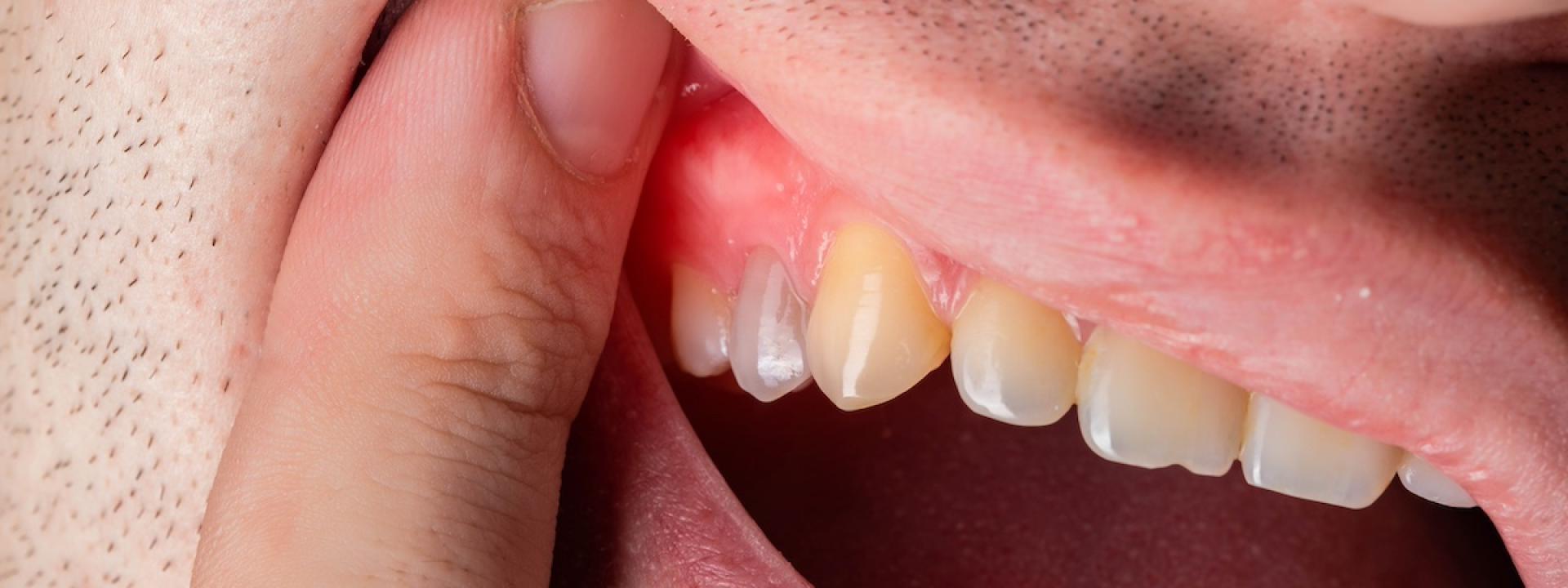Often overshadowed by teeth, gum health is a vital component of overall oral wellness, and changes in their condition can sometimes leave patients puzzled. One particularly perplexing issue is the occurrence of painless gum swelling, a concern we frequently encounter. As dental professionals, our goal is to help you uncover the possible reasons behind this condition and guide you toward effective solutions. Let’s dive into the intricate world of gum health, explore the common causes of painless gum swelling, and outline the key steps to address, manage, and prevent this issue for a healthier, more confident smile.
Gum Anatomy
You need to understand your gums’ structure to determine why they might swell without pain or discomfort. Scientifically known as gingiva, your gums consist of several layers, each with a unique role and composition. These layers house a network of blood vessels and nerve endings, making them highly sensitive to changes and irritation.
The Role of Gums in Oral Health
Gums, often overlooked as the pink frame around your teeth, are essential guardians of your oral health. They form a protective barrier, shielding the underlying dental structures from harmful bacteria, irritants, and potential infection. But their role doesn’t stop there—gums also serve as the foundation that keeps your teeth firmly anchored in the jawbone, providing stability and support. By safeguarding these often underappreciated structures, you’re investing in the overall strength and health of your smile.
Common Causes of Swollen Gums
Gingivitis
Gingivitis is one of the most common culprits of painless gum swelling. This mild form of gum disease silently penetrates the gingival tissues and often leads to more severe problems. Remarkably, gingivitis can progress without causing pain, making it a stealthy cause of swollen gums that often goes unnoticed.
Medication Side Effects
Certain medications can have unexpected effects on your oral health, with gum swelling being one of the more noticeable side effects. This condition is known as drug-induced gingival enlargement. While the swelling is often painless, it can still be a cause for concern, potentially affecting both the appearance and health of your gums. Understanding this connection can help patients and dental professionals work together to manage and mitigate its impact.
Medications that can cause swollen, painless gums include:
- Antiseizure drugs
- Calcium channel blockers
- Immunosuppressants
Hormonal Changes
Hormonal fluctuations, particularly in women, can also lead to gum swelling. Pregnancy-related gingival swelling is a well-documented example where changes in hormone levels can increase blood flow to the gums and alter the body’s response to irritants.
Allergic Reactions
In some instances, gum swelling can result from an allergic reaction. Common culprits include certain ingredients in toothpaste, mouthwash, or even specific foods, which can trigger sensitivity in some individuals. This type of gum swelling, while often unexpected, underscores the importance of identifying the allergen responsible. Once the source is pinpointed, avoiding the irritant becomes key to managing and resolving the reaction, helping restore gum health and comfort.
Medical Conditions and Swollen Gums
Periodontal Disease
Periodontal disease, which includes the more severe form known as periodontitis, can silently progress within the gums. This inflammatory condition affects the superficial gum tissues but goes much deeper, impacting your teeth’s support structures. While it sounds quite painful, many patients experience painless swelling in the initial stages of periodontal disease.
Systemic Illnesses
Systemic conditions, such as diabetes, can have a profound effect on gum health. Diabetes, in particular, can compromise the body’s ability to fight infections, making the gums more vulnerable to issues like inflammation and swelling. These gum problems often develop subtly and may not cause noticeable pain at first, but they can progress if left unaddressed. Managing systemic health conditions is an essential part of maintaining strong, healthy gums and preventing potential complications.
The Link Between Hygiene and Gum Health

Establishing and maintaining an appropriate oral hygiene routine is vital to prevent and manage painless gum swelling. The primary culprit behind gum swelling is often an accumulation of plaque on teeth. Fortunately, taking good care of your teeth can prevent plaque from building up.
Gum-Friendly Oral Care Tips
Effective oral care begins with choosing the right tools and techniques. Use a soft-bristle toothbrush and employ gentle, circular motions when brushing. This ensures effective cleaning and minimizes the risk of gum irritation. Flossing is also instrumental in removing plaque and debris from between teeth and along the gums.
Regular dental check-ups are another important part of keeping your gums healthy. They allow for early detection and prevention of gum problems and provide a way to stay informed about best practices for maintaining or improving oral health.
When to Seek Professional Help
If you have swollen, pain-free gums, keep an eye on them. Regular monitoring provides valuable insights into the progression and nature of the swelling.
Red Flags for a Dental Visit
Certain signs and symptoms should immediately prompt you to seek professional dental care. These include persistent and unrelenting swelling, bleeding, pus discharge, or noticeable changes in the color of your gums. These symptoms may signify underlying dental issues that require prompt professional attention.
Diagnosis and Treatment
When you consult a dentist about painless gum swelling, you can expect a comprehensive evaluation to identify the underlying cause. This typically begins with a visual inspection of your gums to check for signs of inflammation, irregularities, or other concerns. The dentist may also use a periodontal probe to measure the depth of any pockets between the teeth and gums, which can indicate gum disease. Additionally, diagnostic tools such as X-rays may be used to assess the health of the underlying bone and dental structures. Together, these steps provide a clear picture of the issue and guide the dentist in recommending the most effective treatment plan.
Treatment Options
Treatment varies depending on the underlying cause of gum swelling. Addressing the root cause of the swelling is the only way to truly eliminate it. Treating the underlying problem may involve improving oral hygiene, discontinuing medication, or managing systemic illnesses. Your dentist might recommend medications or dental procedures as part of your treatment plan.
Preventing Swollen Gums
Preventing gum swelling, whether accompanied by pain or not, begins with proactive gum health measures. One of the most important steps in avoiding swelling is establishing a daily oral care routine that encompasses brushing, flossing, and using an antiseptic mouthwash. A balanced diet, rich in essential vitamins and minerals, also contributes to gum health.
Lifestyle Adjustments
Making specific lifestyle changes can greatly enhance gum health and help prevent painless gum swelling. Quitting smoking is one of the most impactful steps you can take, as it reduces the risk of gum disease and promotes better oral and overall health. Incorporating stress management techniques and regular exercise into your routine can also be highly beneficial. These practices help lower inflammation in the body and strengthen the immune system, equipping it to combat gum issues more effectively. Together, these adjustments can create a strong foundation for long-term gum health and overall well-being.
Conclusion

Painless gum swelling may be confusing, but knowledge and awareness are your most potent allies in addressing and managing it. Understanding the potential causes and taking appropriate action is essential can help you overcome or prevent this common problem.
Remember, the absence of pain doesn’t mean you shouldn’t be concerned. Take care of your teeth and gums, and seek professional guidance when you have concerns. By doing so, you can address and manage painless gum swelling and ensure the continued health and comfort of your smile. Contact your dentist today if you are concerned about your oral health.

